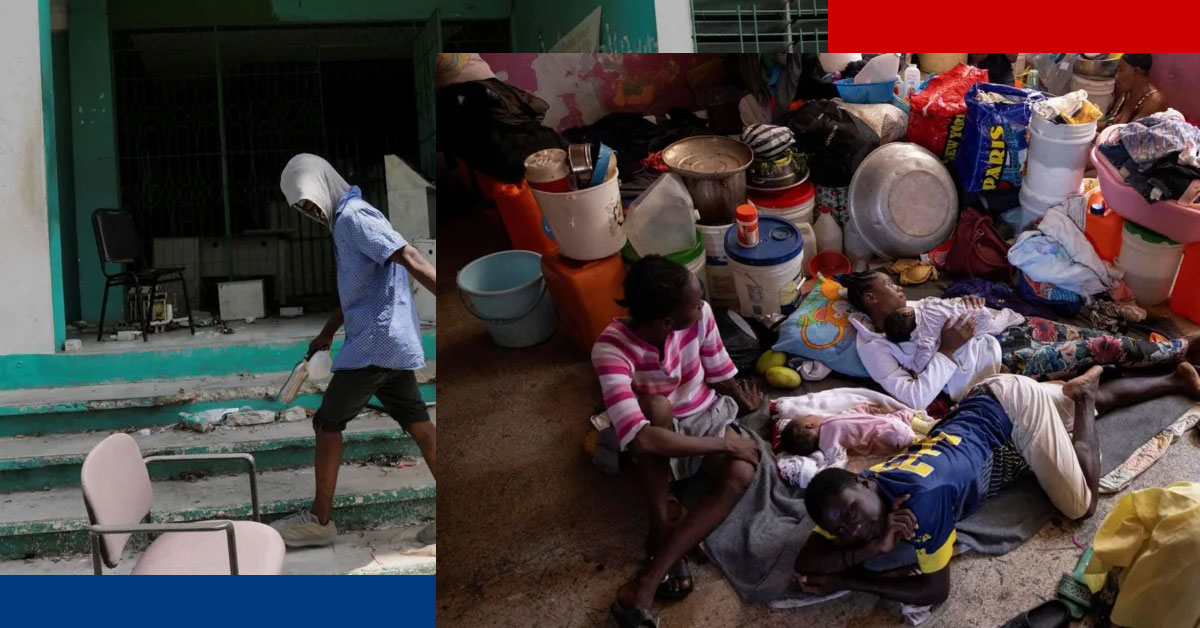The small island with a population of 11.5 million is often marred by natural disasters and political instability, is now facing a devastating crisis in its healthcare system. The collapse of hospitals across the country is compounding the hardships faced by its citizens and threatening the already fragile public health infrastructure. This article explores the multifaceted causes of this collapse, its immediate impacts, and the urgent need for international intervention and support.
Causes of the Collapse
Political Instability and Economic Strain: Haiti's political landscape has been turbulent, with frequent changes in government, protests, and civil unrest. This instability disrupts essential services, including healthcare. Economic challenges further exacerbate the situation, with insufficient funding allocated to health services, leading to deteriorating facilities and a lack of resources.
Natural Disasters: Haiti's geographical location makes it vulnerable to natural disasters such as hurricanes, earthquakes, and floods. The 2010 earthquake, which killed over 200,000 people and displaced millions, caused significant damage to the healthcare infrastructure. Recovery has been slow, and subsequent disasters have repeatedly set back progress.
Pandemic Pressures: The COVID-19 pandemic has strained healthcare systems worldwide, and Haiti is no exception. Limited resources, inadequate testing, and a slow vaccine rollout have overwhelmed hospitals. The pandemic also diverted international aid from other crucial health needs, further weakening the system.
Lack of Medical Supplies and Staff: Chronic shortages of medical supplies, including basic medications, equipment, and protective gear, plague Haiti's hospitals. Additionally, low wages and poor working conditions have led to a shortage of healthcare professionals. Many doctors and nurses have emigrated in search of better opportunities, leaving the country with a critical shortage of skilled personnel.
Immediate Impacts
Increased Mortality Rates: The collapse of hospitals has led to a sharp rise in mortality rates. Patients with treatable conditions are dying due to the unavailability of medical care. Maternal and infant mortality rates, already among the highest in the Western Hemisphere, are climbing as prenatal and postnatal services become scarce.
Spread of Infectious Diseases: With hospitals unable to function effectively, there is a heightened risk of infectious diseases spreading unchecked. Cholera, which re-emerged in Haiti after the 2010 earthquake, remains a significant threat, exacerbated by the collapse of water and sanitation infrastructure.
Mental Health Crisis: The psychological impact of the healthcare collapse is profound. The stress of not having access to medical care, combined with the general state of insecurity, is leading to a mental health crisis. There is a dire need for mental health services, which are virtually non-existent in many parts of the country.
Overburdened International Aid Agencies: International aid agencies are struggling to fill the gap left by the collapse of the national healthcare system. However, their efforts are often hampered by logistical challenges, security concerns, and insufficient funding.
The Way Forward
Addressing the collapse of Haiti's hospitals requires a multifaceted approach:
International Support: The international community must increase aid to Haiti, focusing on rebuilding healthcare infrastructure, providing medical supplies, and supporting healthcare workers. Long-term commitments are essential to ensure sustainable improvements.
Strengthening Local Capacity: Investing in the training and retention of healthcare professionals within Haiti is crucial. Incentives, better working conditions, and professional development opportunities can help retain talent.
Disaster Preparedness and Resilience: Building resilient healthcare systems that can withstand natural disasters is vital. This includes constructing earthquake-resistant facilities, establishing emergency response plans, and ensuring a steady supply of essential medications and equipment.
Government Accountability and Stability: Political stability is a prerequisite for any sustainable development. International pressure and support for good governance can help create a stable environment where healthcare reforms can take root.
Community Engagement: Empowering local communities to participate in health-related decision-making can improve healthcare delivery and ensure that services meet the specific needs of the population.
The collapse of hospitals in Haiti is a humanitarian crisis that demands immediate and sustained action. The international community, in collaboration with the Haitian government and local organizations, must work together to rebuild the healthcare system and provide the Haitian people with the medical care they desperately need. Without urgent intervention, the situation will continue to deteriorate, with devastating consequences for the nation's health and future.


















